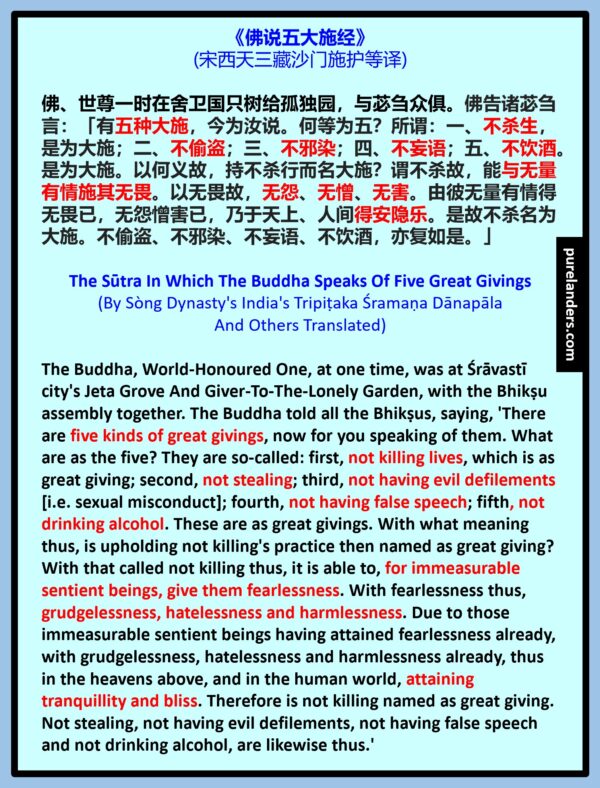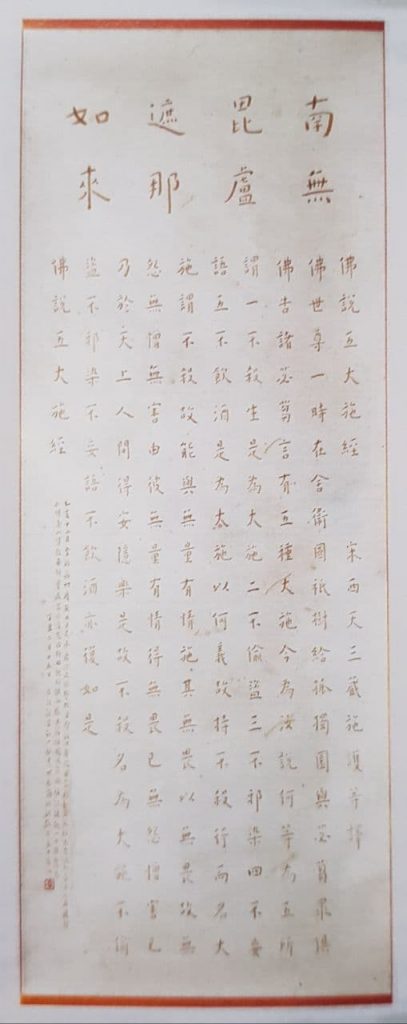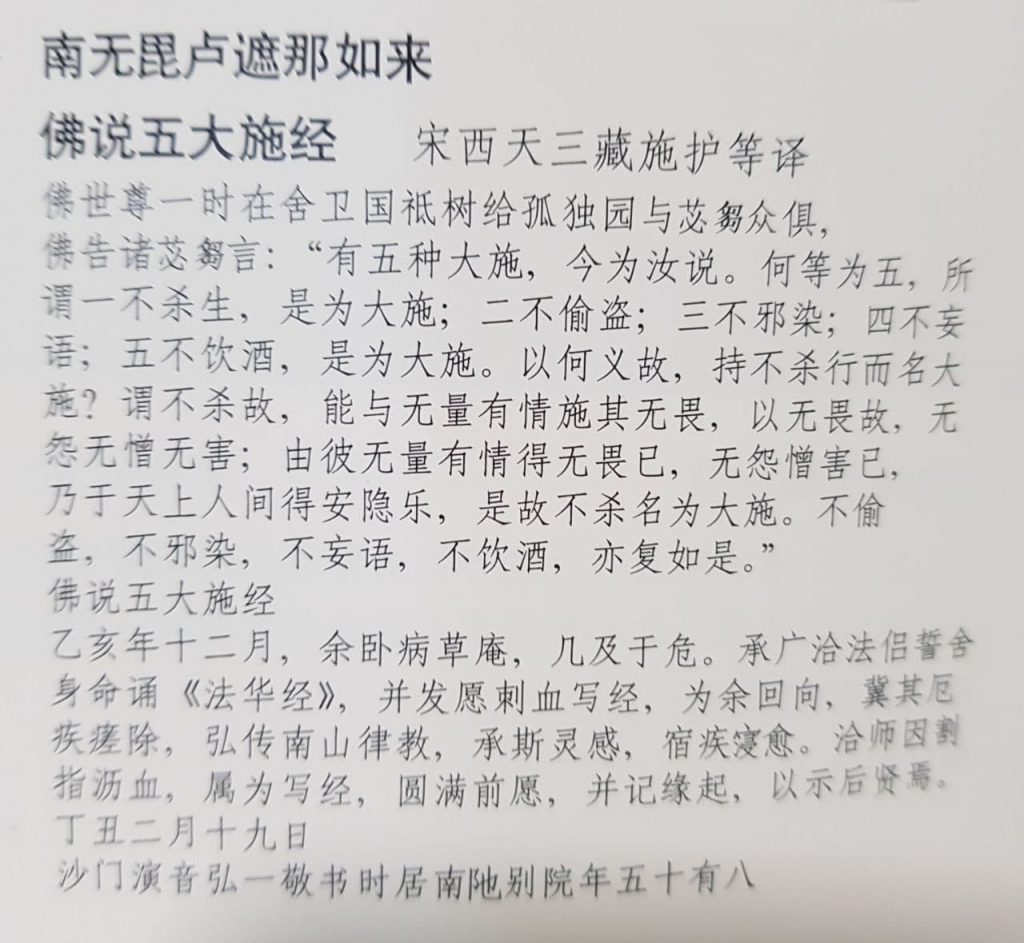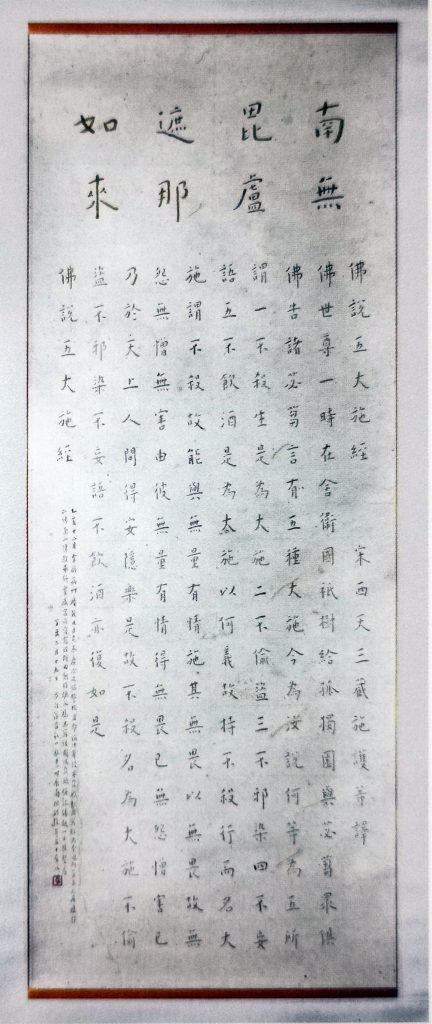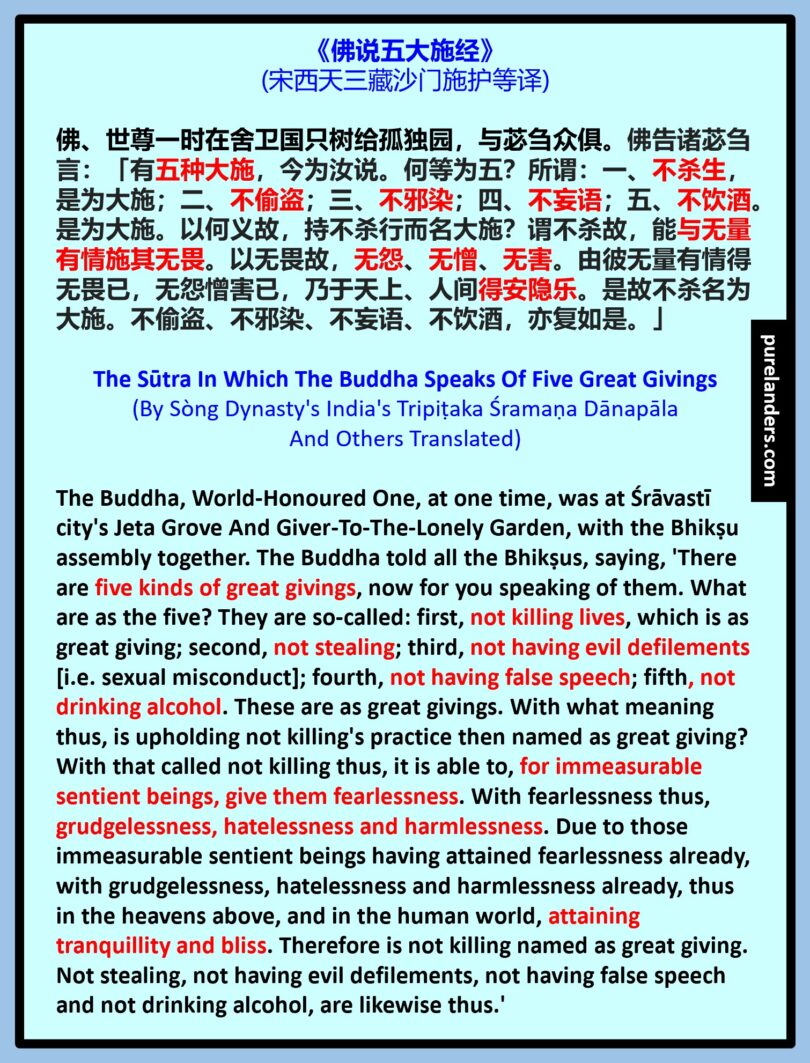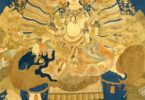《佛说五大施经》
[The] Sūtra [In Which The] Buddha Speaks [Of] Five Great Givings
宋西天三藏沙门施护等译
[By] Sòng [Dynasty’s] India’s Tripiṭaka Śramaṇa Dānapāla [And] Others Translated
佛、世尊一时在舍卫国祇树给孤独园,与苾刍众俱。
[The] Buddha, World-Honoured [One, at] one time, [was] at Śrāvastī City’s Jeta Grove [And] Giver[-To-The-]Lonely Garden, with [the] Bhikṣu assembly together.
佛告诸苾刍言:「有五种大施,今为汝说。何等为五?
[The] Buddha told all [the] Bhikṣus, saying, ‘[There] are five kinds [of] great givings, now for you speaking [of them]. What [are] as [the] five?
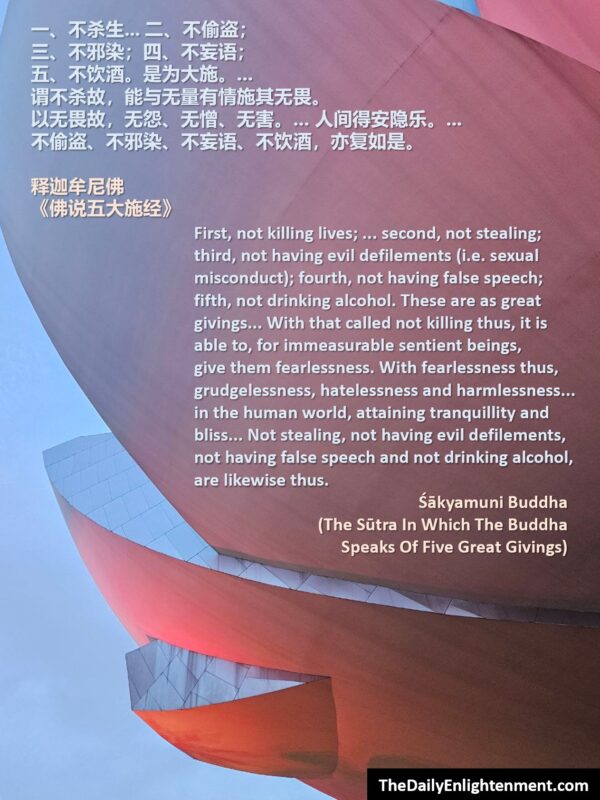
所谓:一、不杀生,是为大施;二、不偷盗;三、不邪染;四、不妄语;五、不饮酒。是为大施。
[They are] so-called: first, not killing lives, [which] is as great giving; second, not stealing; third, not [having] evil defilements; fourth, not [having] false speech; fifth, not drinking alcohol. [These] are as great givings.
[Note 1: These correspond to commitment to observation of the Five Precepts (五戒) respectively for life, with the third as not being defiled by having sexual misconduct.]
以何义故,持不杀行而名大施?谓不杀故,能与无量有情施其无畏。以无畏故,无怨、无憎、无害。
With what meaning thus, [is] upholding not killing’s practice then named [as] great giving? [With that] called not killing thus, [it is] able [to], for immeasurable sentient [beings], give them fearlessness. With fearlessness thus, grudgelessness, hatelessness [and] harmlessness.
由彼无量有情得无畏已,无怨憎害已,乃于天上、人间得安隐乐。
Due [to] those immeasurable sentient [beings having] attained fearlessness already, [with] grudgelessness, hatelessness [and] harmlessness already, thus in [the] heavens above, [and in the] human world, attaining tranquillity [and] bliss.
[Note 2: When the Five Precepts are upheld, the human rebirth is ensured. When they are upheld very well, with the doing of more good, this can lead to a heavenly rebirth. However, as both rebirths are impermanent in nature and do not guarantee liberation, it is best to seek rebirth in Pure Land.]
是故不杀名为大施。不偷盗、不邪染、不妄语、不饮酒,亦复如是。」
Therefore [is] not killing named as great giving. Not stealing, not [having] evil defilements, not [having] false speech [and] not drinking alcohol, [are] likewise thus.’
[Note 3: Contrary to possibly thinking that observation of the Five Precepts is mere avoiding of evil (止恶), which is passive or not proactive doing of good (行善), it is actually also ‘active’ practice of generosity (布施), with the giving of fearlessness, grudgelessness, hatelessness and harmlessness, not to only one or a few sentient beings for a while, but to all beings for life. Observation of the Five Precepts is thus also doing of good.]
[Note 4: As all more advanced and detailed precepts are expanded from the essence of the Five Precepts, it can be said that to observe them completely is to observe all precepts, thus also practising all forms of the givings above.]
[Note 5: If practising with the Bodhi Mind (i.e. Bodhicitta: 菩提心), commitment to the Five Precepts should expand to commitment to the Bodhisattva Precepts (菩萨戒), so as to more proactively help and protect all beings.
And the givings above should expand to become the Pāramitā (i.e. Perfection) of Generosity (布施波罗蜜), which other than with the giving of fearlessness (无畏施), also includes giving of wealth (财施) (in cash, kind, energy…), and giving of the Dharma (法施). The last gift is the greatest of all gifts as it leads to Buddhahood. The giving of the Pure Land teachings leads to attaining of the greatest tranquillity and bliss in and via Pure Land too.]
Namo Amituofo : Translation and notes by Shen Shi’an
